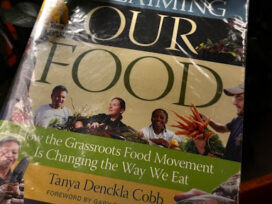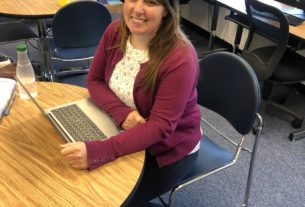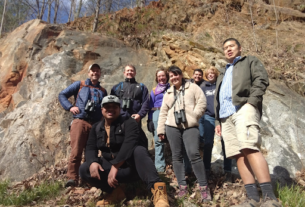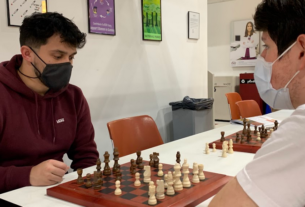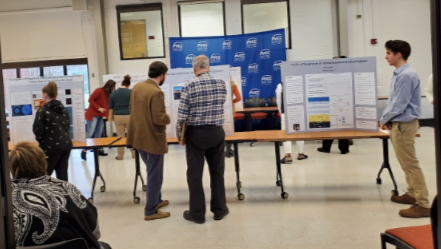
Aspiring Scientists Present Their Findings
Matthew Minecci, staff writer
Once a semester, students of the supervised study courses (BIO 299, CHM 299, GOL 299, PHY 299) PVCC present their work in the Main Building on campus, in M299. These six students had been working all semester on these projects, and it truly shows how much hard work and dedication they put into them. Projects ranging from the effect of caffeine on beetles, to the way temperature affects lithium batteries, these students put their heart into their projects.
“It’s definitely a labor of love, for both the students and the faculty members,” said Professor of Biology, Dr. Anne Allison, who was coordinating the event. In fact, this course is so difficult that every year there are always at least a few students that withdraw The six students Cambell Thornton, Caleb Herndon, Jonathan Rodriguez, Lauren Clark, James Mclvor, and Tyler Wagner all were paired up with faculty members, who assisted them throughout the creative process to create their projects. But, it is all worth it in the end for these students.
PVCC is rather unique in this course, as most undergrads do not get to make a project of this scope so early in their academic careers. The difficulty is rewarded in the results, however, as students who take science majors in PVCC and do this massive final project have an 85 percent transfer/graduation rate.
As for the projects themselves, they were all in-depth and interesting. It was clear that all the students had put a lot of effort into them, and they were all happy to explain what they were researching. For instance, Lauren Clark’s examination of the effect of caffeine on beetles was interesting, with the most effective amount for killing them being around the middle, rather than the more extreme amounts. Tyler Wagner’s experiment on the prevalence of antibiotic resistance in the environment, in which he physically went out to cow fields to test the soil, even going to a pen that held injured zebras.
And while this was all interesting and exciting, it was not without a lot of effort. “I’d say it’s very challenging,” Dr. Allison said. If you wish to contact her with any questions about the fair or about upcoming classes this spring, you can contact her at aallison@pvcc.edu.



